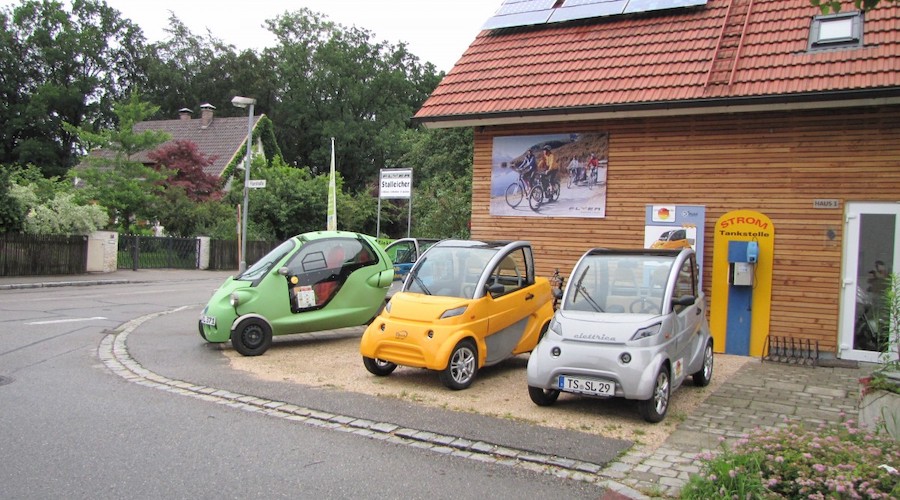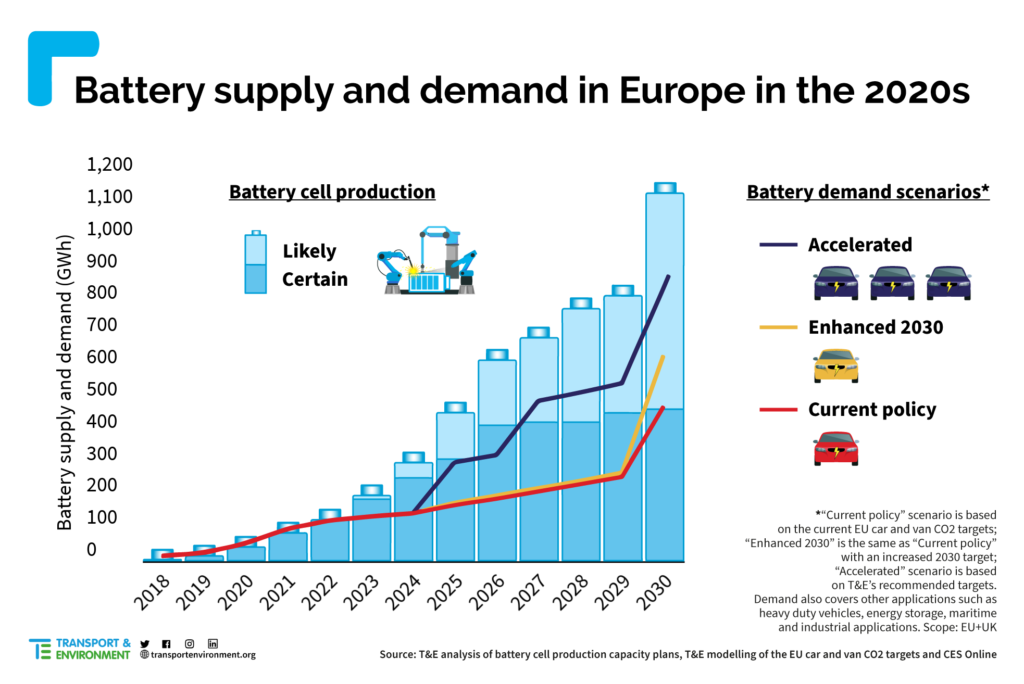Weak emission standards may lead Europe to risk €27bn in battery investments — report

An analysis published by the European Federation for Transport and Environment states that the EU and the UK risk wasting €27 billion in battery investments if they fail to strengthen car and van CO2 emission standards.
The non-governmental organization points out that the surging EV market in the Old Continent has resulted in plans for 38 battery gigafactories, totalling over 1000gWh of output and almost €40 billion in investment.
Out of the 38, 17 planned gigafactories have secured full funding, worth €25.5 billion. A further 10 projects have secured partial financing, including many that are key to Europe’s domestic battery autonomy such as Britishvolt in the UK, Italvolt in Italy, Freyr in Norway, and Basquevolt-Nabatt in Spain. An additional 11 projects — including Volkswagen’s four gigafactories — have recently been announced but no data are yet available.

Yet, according to Transport & Environment’s review, weak CO2 standards between 2022 and 2029 give carmakers little incentive to increase the sales of electric cars until 2030, which could result in well over half of the expected output having no market.
“The battery industry is successfully responding to Europe’s e-mobility ambitions, yet EU policymakers are failing to provide regulatory certainty and guarantee an adequate market for electric vehicles,” Julia Poliscanova, senior director for vehicles and e-mobility at T&E, writes in the analysis. “The EU and UK must raise CO2 standards throughout the decade to avoid wasting billions of investments and derailing the battery boom.”
According to Poliscanova, under current regulations, battery demand will be a mere 174 GWh in 2025, rising to 485 GWh in 2030, when a more ambitious CO2 standard finally enters into force. This is far below the anticipated 462 GWh of battery capacity by 2025, growing to 1,144 GWh by 2030.
In the analyst’s view, much of the excess battery supply can be solved by raising the 2025 CO2 reduction target from the current 15% from the 2021 starting point to 25% and setting an additional target of -40% for 2027, as opposed to the currently legislated 37.5% for cars and 31% for vans starting in 2030. T&E is pushing for this proposal, given that the block is expected to present new car and van carbon dioxide targets in July.
“All petrol and diesel cars engines should be phased out by 2035 at the latest,” the report reads. “Higher CO2 targets would directly benefit the newer wave of predominantly European battery projects.”
{{ commodity.name }}
{{ post.title }}
{{ post.date }}




Comments